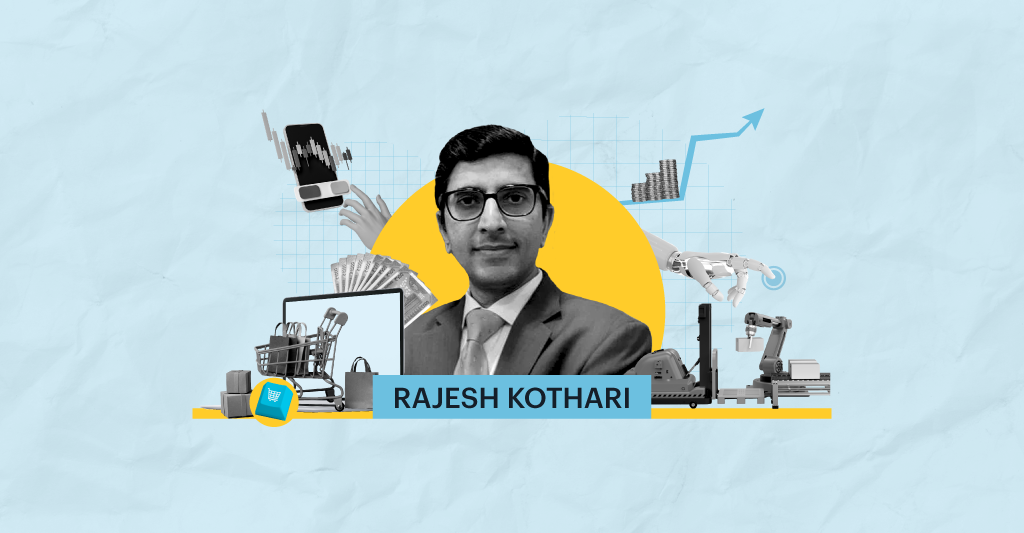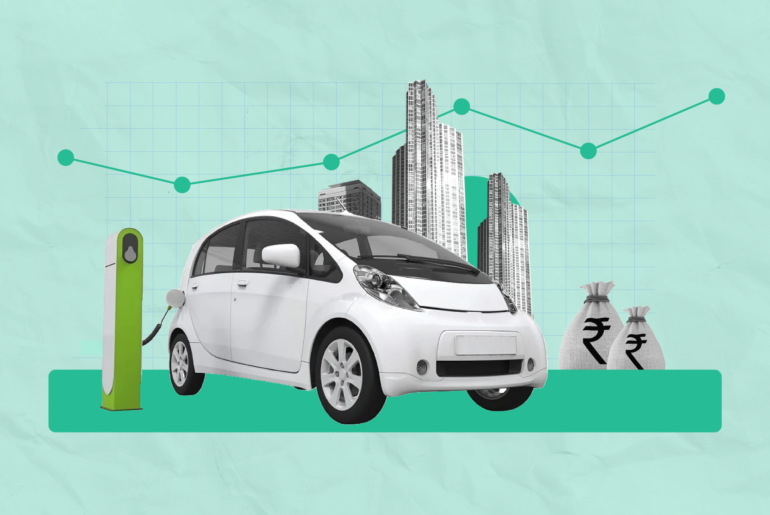Last Updated on Jan 10, 2022 by Ayushi Mishra
Mr. Rajesh Kothari is the visionary Founder & Managing Director of AlfAccurate Advisors & the driving force behind making AAA one of India’s most respected, award-winning investment management firms with 25+ years of rich experience in the Indian capital market.
In Samvat 2077, we entered the year with the Sensex at 43,400 levels and added 18,300 points i.e. a gain of 42% – one of the highest gains in a Samvat. When it comes to important themes for the coming years, we believe that disruption is the most important theme that will play out over the years. Disruption is all around us. It transforms the way we live, displaces existing markets, and pioneers new creations.
Table of Contents
What is leading to faster disruption?
Internet Ubiquity increased access to the internet in India, and the declining cost of data lead to faster adoption of technology by enterprises and consumers. Enhanced internet ubiquity is leading to lower barriers to technology for businesses, thereby enabling a greater number of businesses to effectively leverage technology. A robust digital ecosystem combined with faster digital adoption will create mega opportunities for equity investors.
The rapid advancement in technology has meant the speed of disruption is accelerating. By spotting companies that drive, enable or adapt to change, you can capitalise on these opportunities.
Let us look at a few of the sectors that you’d like to keep on your radar for your smallcases.
Few sectors which are undergoing rapid digital transformation and also providing robust growth opportunities are as below:
Digital Retail
Indian retail is undergoing a rapid digital transformation propelled by online buying/selling, store and inventory management, digital marketing, in-store digital applications, financing, digital payments, etc. These digital innovations will significantly reshape India’s retail industry. According to the estimate, the e-commerce market size will increase from $ 26 bn. (FY 2021) to $ 110 bn. (FY 2025) – i.e, a 4x jump in less than five years.
Digital Finance
Technology is transforming the finance sector across verticals like payments, lending mechanisms, capital markets, etc. For instance, the share of digital payments in the transaction volume is expected to increase from ~40% to ~72% by 2025. Retail online spending has increased from 36% (FY 2017) to 52% (FY 2021). Credit card penetration has increased from 1.4% (FY 2012) to ~3.8% (FY 2020) but it is significantly lower compared with global peers such as the US (320%), Hong Kong (265%), Singapore (155%), and Japan (214%). Spends as a percentage of GDP also remains low at ~3.6% v/s 25% for Hong Kong and 17% for the US.
Digital Health
It would be an understatement to say that technology has empowered medical professionals to deliver improved healthcare. The healthcare industry is on the cusp of a significant digital transformation by leveraging Artificial Intelligence, Machine Learning, and other modern technologies. Further, with the launch of national public health initiatives such as the National Digital Health Mission and Ayushman Bharat, India has an opportunity to become a digital health leader across the globe. Boston Consulting Group (BCG) anticipates that the National Digital Health Blueprint (NDHB) can unlock the incremental economic value of over $ 200 bn. for the health sector over the next ten years.
Digital Logistics
Technology is facilitating the evolution of the modern supply chain and is set to transform the logistics landscape in the country. By employing IoT-led and AI-enabled technologies such as machine learning, cloud computing, along with real-time data analytics, logistics players have been able to significantly reduce fleet downtime, address any issue in real-time, and predict customer behaviour. The coming years will see more companies adopting digital tools to drive their efficiency as well as productivity.
Industrial Automation
Industrial automation will play a crucial role in Industry 4.0 by driving efficiency and agility. As a result, industrial automation will likely see explosive growth over the coming decade as AI/robots ultimately gain the ability to collaborate seamlessly with both people and other machines.
You can find Alfaccurate smallcases here.
In the midst of market euphoria, long-term, diversified equity portfolio returns may sound stodgy compared to the huge success stories that make news headlines. But you must steel yourself from greed and the fear of missing out (FOMO) when it happens. A risk-managed strategy may not provide you with great stories to boast about to friends, but it can help you build wealth in a prudent manner over the long term—which is what we believe long-term investors should focus on now.
- Stock Picks For 2022 - Jan 10, 2022




